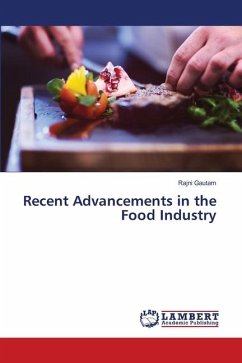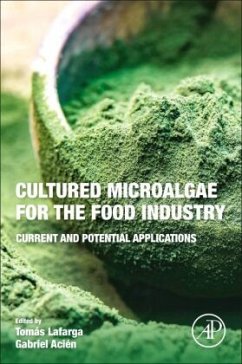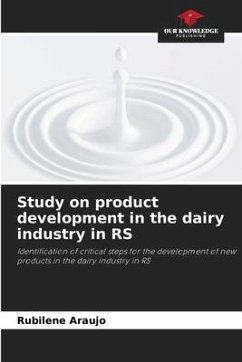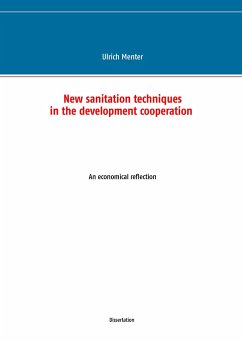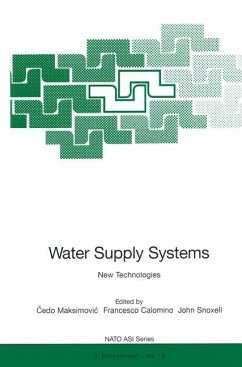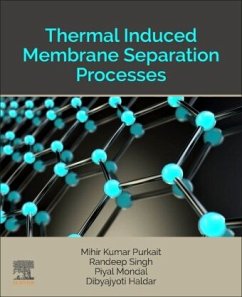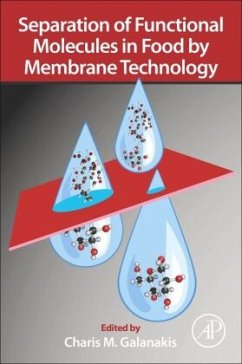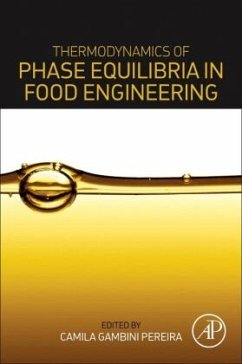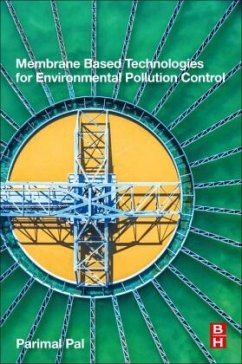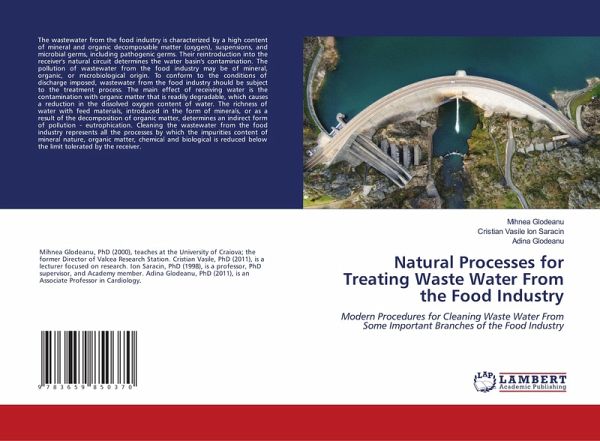
Natural Processes for Treating Waste Water From the Food Industry
Modern Procedures for Cleaning Waste Water From Some Important Branches of the Food Industry
Versandkostenfrei!
Versandfertig in 6-10 Tagen
29,99 €
inkl. MwSt.

PAYBACK Punkte
15 °P sammeln!
The wastewater from the food industry is characterized by a high content of mineral and organic decomposable matter (oxygen), suspensions, and microbial germs, including pathogenic germs. Their reintroduction into the receiver's natural circuit determines the water basin's contamination. The pollution of wastewater from the food industry may be of mineral, organic, or microbiological origin. To conform to the conditions of discharge imposed, wastewater from the food industry should be subject to the treatment process. The main effect of receiving water is the contamination with organic matter ...
The wastewater from the food industry is characterized by a high content of mineral and organic decomposable matter (oxygen), suspensions, and microbial germs, including pathogenic germs. Their reintroduction into the receiver's natural circuit determines the water basin's contamination. The pollution of wastewater from the food industry may be of mineral, organic, or microbiological origin. To conform to the conditions of discharge imposed, wastewater from the food industry should be subject to the treatment process. The main effect of receiving water is the contamination with organic matter that is readily degradable, which causes a reduction in the dissolved oxygen content of water. The richness of water with feed materials, introduced in the form of minerals, or as a result of the decomposition of organic matter, determines an indirect form of pollution - eutrophication. Cleaning the wastewater from the food industry represents all the processes by which the impurities content of mineral nature, organic matter, chemical and biological is reduced below the limit tolerated by the receiver.





